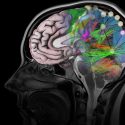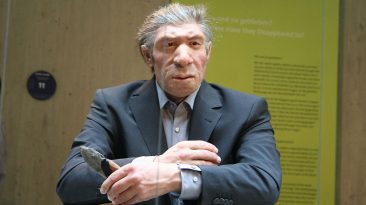Your alarm clock rings. Do you jump out of bed? Or hit the snooze button?
Do you take cream? Sugar? Or both?
We make thousands of decisions everyday. Some are easier than others. But at the end of the day, do we really have a say?
What if choice is simply an illusion? What if every decision you make is determined by your biology?
What if who you are, what you do, and who you become comes down to just a bunch of neurons firing automatically within your brain?
Back in the 1980s, physiologist Benjamin Libet designed an experiment to determine whether or not we have free will. He asked a group of volunteers to sit still for a while, and then told them they could move a finger whenever they wanted to.
[dx_custom_adunit desktop_id=”RTK_CDE4″ mobile_id=”RTK_SUFd”]Libet scanned his subjects’ brains during the experiment, and noted a spike in brain activity moments before participants became aware of wanting to move. This experiment seemingly proved that “free will” is simply us taking ownership of decisions the brain has already made.
We all know the ’80s were out of control. But now ask yourself, are you? Many of today’s scientists are skeptical of the idea of free will. It’s more likely that your thoughts, your actions, and your behavior are determined by a constant sequence of neurons firing within your brain.
Some even suggest that, with a complete understanding of someone’s brain architecture, and how it’s been shaped from birth, you could predict their choices with total accuracy. If that’s the case, then we don’t have free will! But what exactly does that mean?
It means you’re free. You’re not responsible for anything! In fact, no one is!
Forgive any of those “bad habits” you may have, they can’t be helped! Stop working so hard! If you were born smarter, you’d be an A student!
Commitment? That’s not like you. Crime? What crime? Should you be punished for an act you didn’t choose to commit?
It turns out, we need free will. Real or not, a society without accountability simply cannot function.
In several studies, it’s been proven that people who don’t believe in free will are more inclined to feel stressed, depressed, unmotivated, and to act immorally. When life seems meaningless, we stop seeing room for improvement. We don’t try as hard at work, or at home; we stop looking out for each other, and even ourselves.
In a world without free will, there’s no praise and there’s no blame. There’s no right and there’s no wrong.
There’s simply no reason. But don’t give up yet! Here me out for just… 200 milliseconds!
An argument from Benjamin Libet’s experiments is that roughly 200 milliseconds pass between when brain activity spikes before the body moves, and when someone becomes aware of their decision to move. And this is just enough time to veto any decision your brain’s made without you!
In other words, you can act otherwise! As long as you believe your ‘veto’ was a choice you made with your own free will.
So, what will you decide? Will you sleep in? Or seize the day?
Subscribe to What-If on Youtube or follow the show on Facebook Watch.
Sources
- “Do We Have Free Will?”. 2019. Psychology Today. Accessed March 3 2019.
- “Can We Live Without Free Will?”. 2012. New Scientist. Accessed March 3 2019.
- “Brain Might Not Stand In The Way Of Free Will”. Ananthaswamy, Anil. 2012. New Scientist. Accessed March 3 2019.
- “There’S No Such Thing As Free Will”. Cave, Stephen. 2016. The Atlantic. Accessed March 3 2019.
- “What Happens If We Do (Or Do Not) Believe In Free Will?”. Seto, Elizabeth, 2016. Quartz. Accessed March 3 2019.
- “The Libet Experiment And Its Implications For Conscious Will”. 2013. bethinking.org. Accessed March 3 2019.



























